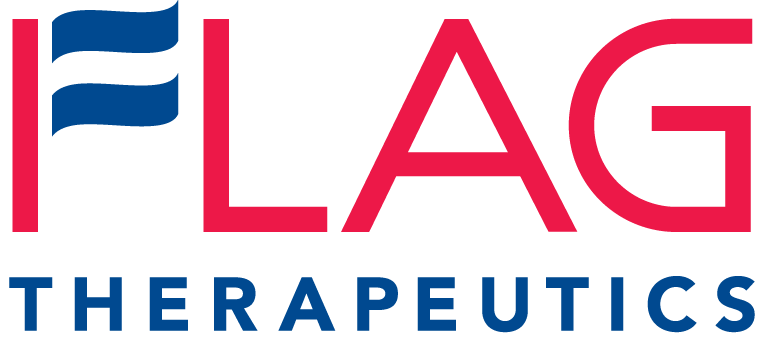Solutions for Difficult-to-Treat Cancers
Headquartered in Raleigh, North Carolina, FLAG Therapeutics, Inc. is a near-term clinical stage company targeting difficult-to-treat cancers that represent significant unmet medical needs in both adults and children. The company’s product pipeline currently includes investigational, small molecule therapeutics for the treatment of diffuse intrinsic pontine glioma (DIPG) and glioblastoma multiforme (GBM) as well as triple negative breast cancer (TNBC), ovarian cancer, mesothelioma and pancreatic cancer. FLAG-003 for DIPG and GBM, FLAG’s most advanced product candidate, is projected to enter Phase 1/2 clinical development in early 2025 in children diagnosed with DIPG.
Three Drug Discovery Platforms
FLAG is leveraging its three proprietary drug discovery platforms to develop water-soluble, multi-acting small molecule therapeutics designed to target, bind and kill cancer cells through well-established mechanisms of action. Preclinical studies suggest that investigational compounds derived from these platforms hold the potential to treat multiple cancer types with greater efficacy and tolerability than that observed in conventional therapies. These three platforms include:
Anti-Angiogenic / Tubulin Inhibitors:
Multi-acting single agent for highly vascularized tumors
Low molecular weight = able to cross blood brain barrier
Target indications:
Diffuse Intrinsic Pontine Glioma - FLAG-003
Glioblastoma Multiforme - FLAG-003
Triple Negative Breast Cancer - FLAG-001
FR-⍺/ GARFTase Inhibitors
Multi-acting single agent for tumors that over express Folate Receptor-α
Target Indications:
Ovarian Cancer
Mesothelioma
FR-⍺/ SHMT-2 Inhibitors
Multi-acting single agent for tumors that over express Folate Receptor-α
Target Indication: Pancreatic Cancer
Robust Investigational Product Pipeline
FLAG Therapeutic’s investigational pipeline is filled with multiple opportunities derived from the company’s platform technologies. Prior to advancing into further development, each compound is well-characterized. This knowledge positions researchers to better predict a compound’s potential efficacy and tolerability profile, thereby serving to ‘de-risk’ the development pathway.
The following is a list of characteristics found in each of FLAG’s investigational compounds:
Potent – effective in nanomolar (nM) concentrations
Selectively targeted to a specific organ/site of interest
Low molecular weight that allows for improved solubility, target engagement and cell penetration
Scalable synthesis to commercial production
Low cost of goods (COGs)
Potential to be superior to Standard of Care (SoC) with respect to efficacy and/or safety measurements
Extensive Intellectual Property Portfolio and Market Exclusivity
FLAG Therapeutics has a robust intellectual property (IP) portfolio surrounding all of its drug discovery platforms as well all as the potential for extended market exclusivity offered through U.S Food and Drug Administration’s Orphan Drug Designation and Pediatric Drug Designation programs for qualifying indications. To date, FLAG’s IP portfolio includes over 100 issued patents and over 30 pending applications covering both composition of matter and method of use.
A Novel Approach to Drug Development
FLAG Therapeutics is structured to allow the company to focus on what it does best—drug development— while still fueling drug discovery. This is possible pursuant to an exclusive worldwide licensing agreement reached between FLAG and Duquesne University (DU), home to the research laboratory of world-renowned medicinal chemist Dr. Aleem Gangjee. Dr. Gangjee’s use of computer modeling/artificial intelligence coupled with his 35 years of experience and research team has allowed Dr. Gangjee to make, and continue to make, ground breaking discoveries in the field of cancer research. As part of the licensing agreement , all new discoveries and improvements to existing molecules originating from Dr. Gangjee’s lab will flow directly to FLAG for continued evaluation and development.
At-a-Glance:
3 Drug Discovery Platforms
Water-soluble small molecules designed to target, bind and kill cancer cells
Leadership experienced in drug development and commercialization
First approval anticipated within 3 to 5 years

